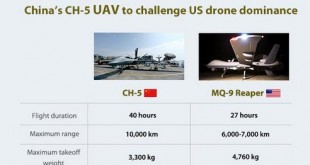Yemen, a nation on the brink, is entangled in a complex web of conflict. At the forefront stand the Houthis, a rebel group with a murky past and ambitious goals. Let’s delve deeper into this crisis, understanding the players, their motivations, and the recent escalation of tensions.
The Rise of the Houthis: From Theological Scholars to Rebel Leaders
The Houthis, or Ansar Allah (Partisans of God), emerged in the late 1980s as a religious revival movement rooted in Zaidi Shia Islam. Founded by Hussein Badreddin al-Houthi, they challenged the Yemeni government, citing political and economic marginalization of their community. Following Hussein’s death in 2004, his brother, Abd al-Malik al-Houthi, took the reins, transforming the group into a formidable armed force.
A Perfect Storm: Grievances Fuel the Flames of War
The Houthi rebellion feeds on a potent cocktail of grievances. They accuse the Yemeni government of corruption, repression, and neglecting the needs of the Zaidi minority. Additionally, they view themselves as guardians of Yemeni sovereignty against foreign influence, particularly from Saudi Arabia.
Goals: The Houthis aim for control of Yemen, citing political, economic, and religious grievances. They currently hold territory housing a significant portion of the Yemeni population.
2014: A Turning Point – The Conflict Ignites
In 2014, the simmering tensions boiled over. The Houthis, capitalizing on widespread discontent, seized control of the capital, Sanaa. This triggered a full-blown civil war, fracturing the nation along political and sectarian lines.
Houthi Alliances and External Support
Axis of Resistance: The Houthis are part of the Iranian-led network known as the Axis of Resistance, collaborating with Hezbollah and Iraqi Shi’a militias. This alliance provides them with financial, military, and political support.
A Proxy War in Yemen’s Backyard: Regional Powers Take Sides
The conflict escalated further with the Saudi-led coalition’s intervention in 2015, aiming to reinstate the ousted Yemeni government. This move effectively transformed Yemen into a battleground for regional supremacy, with Iran backing the Houthis as part of their rivalry with Saudi Arabia.
Humanitarian Catastrophe: Yemen Bleeds
Years of relentless conflict have inflicted a devastating toll on Yemen. Millions are displaced internally, facing acute food insecurity and a crumbling healthcare system. The situation is a humanitarian nightmare, with no end in sight.
A Recent Twist: The US Weighs In and Labels the Houthis as Terrorists
In January 2024, the US designated the Houthis as a Specially Designated Global Terrorist Group. This move, intended to curb their attacks and disrupt Iranian influence, has drawn criticism. Some fear it could hinder peace talks and complicate humanitarian aid delivery. The presence of multiple factions and international actors, including Iran and the US, adds complexity and volatility to the situation.
Why Does the US Care?
Maritime Security: Attacks on Red Sea shipping lanes threaten a crucial route for global commerce, with 30% of the world’s container ship traffic passing through this region.
Countering Iranian Influence: The US response also aims to deter the broader threat posed by the Iranian-backed Axis of Resistance. However, there’s a delicate balance to maintain, as escalating tensions is undesirable.
Recent Developments
Houthi Attacks and US-UK Response: Following attacks on Red Sea vessels, the US and UK launched airstrikes against Houthi targets, marking the first US intervention since 2016.
Looking Forward
The future trajectory of the Houthi conflict remains uncertain. The US designation as a terrorist group might hinder peace talks and humanitarian aid efforts. Much depends on how the Houthis respond and whether the international community can prioritize resolving the complex humanitarian crisis in Yemen.
References and Resources also include;
https://www.unomaha.edu/ncite/news/2024/01/understanding-the-houthi-conflict.php
 International Defense Security & Technology Your trusted Source for News, Research and Analysis
International Defense Security & Technology Your trusted Source for News, Research and Analysis

